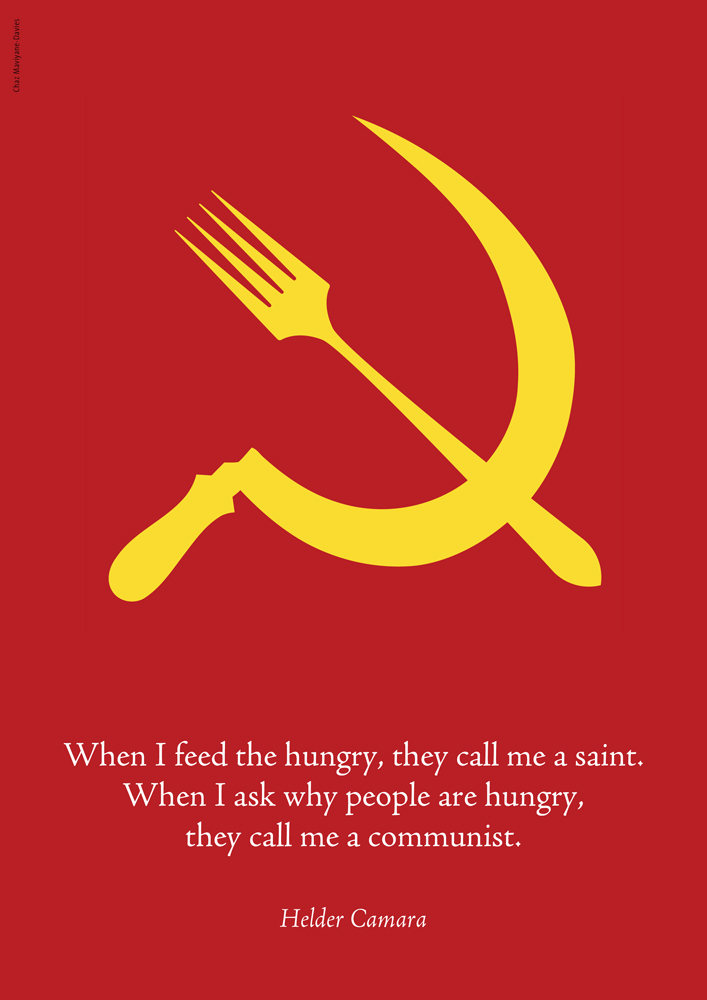Me a tribalist?
Tuesday, October 1st, 2013 by Marko PhiriZimbabwe’s politics, history has recorded, is mapped by ethnic and tribal loyalties, and it’s just something that refuses to be ignored despite all pretense by some that this is fomented by architects of anti-statehood.
Even Mugabe has over the years lashed out at perceived tribalists despite himself being fingered for criticism by some historians who contend he did not hide his leanings even before the Gukurahundi was unleashed.
The perceptive have observed that Zanu PF officials from Matabeleland address supporters in Shona when in Mashonaland but party officials from Mashonaland “insist” on addressing supporters in Shona during their Matabeleland rallies.
You only have to read through online bulletin boards to get a pulse of the rabid tribalism Zimbabweans harbour, never mind the usual “I’m not tribalist, some of my friends are Shona/Ndebele” casuistry.
There is so much anger out there you even wonder whether its posted in jest or not, yet if you have met folks who claim they have been aggrieved by one tribe or another, you get the sense that indeed these posts are the real deal.
That is why I found it the apex of hypocrisy when Thokozani Khuphe was accused of blocking a Shona-speaking fellow from being elevated to the post of Bulawayo deputy mayor.
Anyone who is a native of Zimbabwe’s second city is aware of the ages-old complaint about how Zanu PF abandoned Matabeleland to the periphery of economic development solely on tribal and ethnic considerations.
That is exactly why the region has over the decades seen a proliferation of political outfits and pressure groups dedicating their cause to devolution and even cessation.
Amid all the militancy, it would be strange then to have a Shona-speaking senior city official when the people from the region know damn well there are capable locals to fill that post.
That is precisely why many have accused Zanu PF of unbridled arrogance, recalling of course that there have been sentiments from senior party officials that no Ndebele will ever rule this country.
Zimbabwe is for all Zimbabweans some are fond of saying, yet take a walk around the city of Bulawayo and eavesdrop on conversations and the anger of exclusion is just too palpable.
I hear all the time complaints about how government offices in Bulawayo now have Shona as the language of business where Ndebele speaking folks have trouble getting assistance in their own region!
Try speaking Ndebele in Harare government offices!
No one is addressing these issues, yet you have the Herald jumping to point accusatory fingers at Thokozani Khuphe as if what she allegedly said is something new.
It is the same Herald that hauled Tendai Biti over the coals for his “de-Zezuruisation of the state” sentiments where he pointed to the domination of the state by one group of people.
Obviously the argument would be that sentiments like that are not expected from a person of Khuphe’s status – whatever it is now that she is no longer deputy PM – yet her comments, if true, only expose her own frustration about how the people of Matabeleland find themselves pushed out of public office and apparently have no say in the running of their own affairs.
We heard the same accusation levelled at political parties who pushed the Matabeleland agenda during the July 31 where these parties were accused of tribalism simply because their manifesto made the development of Matabeleland their rallying cry.
People who complain about marginalisation obviously know what they are talking about and merely dismissing them as tribalist fucks does not solve matters.
Someone in fact commented that is it even imaginable to have a Ndebele-speaking Harare mayor.
That is the country we live in where we have seen that issues of the territorial integrity rhetoric so loved by Zanu PF find even louder resonance in Matabeleland.
It was only a few years ago that former Bulawayo Joshua Malinga got into trouble with the law after not taking too kindly to being addressed in Shona by a cop in Bulawayo.
While Malinga raised what he felt was necessary noise, it was easy for some to dismiss him as a tribalist, yet no one cared to look into what has essentially become a decades-old problem where civil servants are deployed to regions where they have no grasp of the local languages.
Many a time we read of cops addressing Tonga-speaking villagers deep in Binga in Shona, and the fact that these cops see nothing wrong with that is exactly what feeds the anti-Shona sentiment, and that’s a fact that must be accepted if relations are to improve.
It is public knowledge for example that for a long time the Bulawayo municipality and even the local opaque beer manufacturers never hired people from outside the “region,” whether this is or was official policy is neither here nor there, what remains indisputable is that as long as that existed “policy” it pointed to efforts to maintain some kind of identity and claim something as their own.
There is also a strong anti-Shona sentiment concerning the National University of Science and Technology that goes back to former governor the late Welshman Mabhena who did not see any sense why “outsiders” were offered places ahead of local students.
From as far back as the 1970s – and even further during the nascent years of nationalism fervor if you read Terrance Ranger - (Wilfred Mhanda writes in his memoirs about “Shona-speaking” Zapu fighters defecting to Zanu. If tribal/ethnic considerations were not at play, why would Mhanda prefix the Zapu members with “Shona-speaking”? ) when manifestos were allegedly written about the systematic dilution of the Ndebele presence in Matabeleland, locals remember these things and to pretend otherwise is just another political expediency ploy that has made sure tribalist sentiments do not go away.
In any case, one only has to attend a soccer match pitting Highlanders and Dynamos at BF to get out of their one-big-happy-family reverie.










